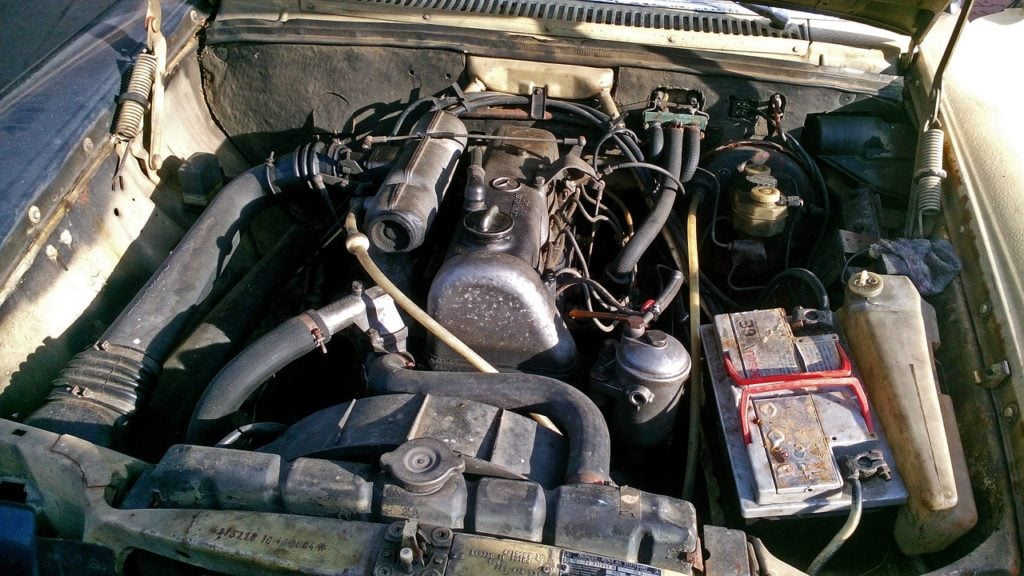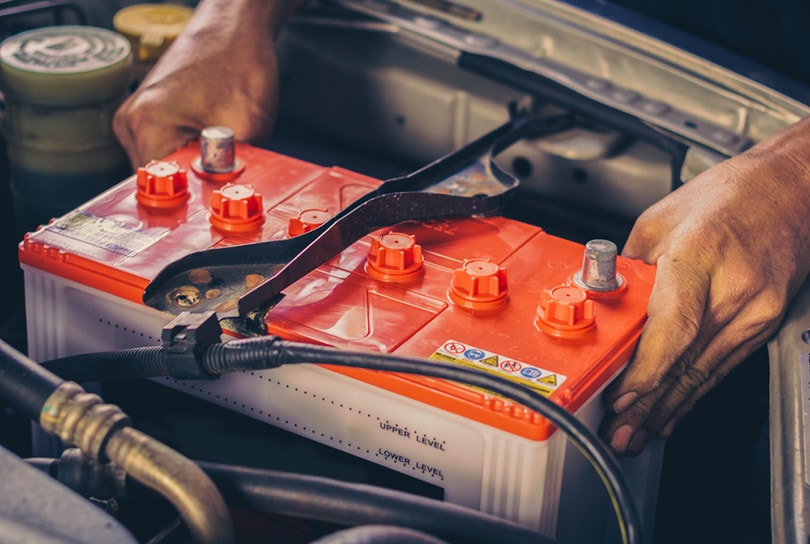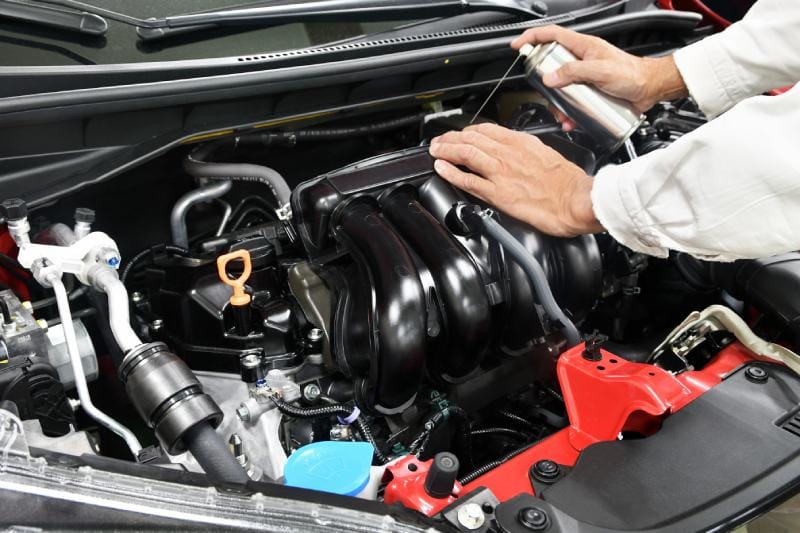Can You Pressure Wash an Engine? 5 Simple Steps
-
Ed Malaker
- Last updated:

Your vehicle’s engine can get extremely dirty, especially if the car is a few years old. Motor oil, joint lubrication, dirt and grime from the road, and other contaminants wind up on the surface, creating a thick black greasy layer. Since cleaning it can be a big job, many people wonder if it’s safe to use a power washer to remove the grease, especially if you’re looking to sell the car. The short answer is yes, you can power clean your engine, but it requires a great deal of preparation. Keep reading as we explain what you’ll need to do to safely use a pressure washer on your engine to get it looking new again.
The 5 Steps on How to Pressure Wash an Engine
1. Disconnect the Battery

There are many electrical components in an engine; if they get wet while connected to a battery, it can cause internal damage. Therefore, it’s best to disconnect the battery before spraying any water into the engine.
2. Wrap Your Delicate Items
Use large plastic poly bags to cover electrical components in the engine to protect them while you power wash. Cover the battery, wiring, distributor, alternator, and alarm system. Taking the time to get a good cover over these items will help minimize the risk of causing damage to the engine when you are using the power-washing machine.
3. Apply a Degreaser
Spraying the surface with a strong degreaser and letting it soak in can help make cleaning easier. Choose something powerful that won’t damage the plastics, rubber, or other delicate items in the engine. If possible, purchase a brand specifically for cleaning engines.

4. Power Wash
Get a power washer that enables you to adjust the pressure of the water. Select a low water pressure, about 2,000 pounds per square inch (PSI), and use a 40-degree nozzle for a wide cleaning area. Spray the engine from about 3 feet away to remove dirt and grime without causing damage. Take your time, and be careful not to spray any sensitive areas to avoid causing damage. Never point the nozzle directly at plastic components, wires, or hoses. If you don’t have experience with a pressure washer, hire someone to do the job for you.
5. Dry the Engine

Once the engine is clean, let it dry out completely. Remove the plastic coverings that you placed over the electrical components, and use a blower or a large fan to speed up the drying process.
6. Reconnect the Battery
Once the engine is completely dry, reconnect the battery, and start the car to ensure that the cleaning process didn’t cause any damage.
Safer Cleaning Options
If you don’t have much experience with pressure washers, we recommend taking the car to a professional. Many auto-detailing shops will use a pressure washer to clean the engine, and the technicians there have plenty of experience. A professional can clean the engine much faster and with less risk of damage.
Another option for those without a pressure washer is hand washing. A strong degreaser and soft bristle brushes can work just as well as a power washer but will take more time. Always wear protective gloves and safety glasses when working with degreasers.
Summary
Pressure washing your engine can be a fast and effective way to remove the grease and grime that builds up over time, but you can also damage it if you are not careful. Covering sensitive electrical components with durable poly bags can help reduce the risk of electrical damage, and using lower pressure and an angled tip for a wider cleaning area will help reduce the risk of other types of damage. We recommend hiring a professional if your budget allows it because their experience will save time and usually result in a cleaner engine with less risk.
Featured Image Credit: emkanicepic, Pixabay
Contents
